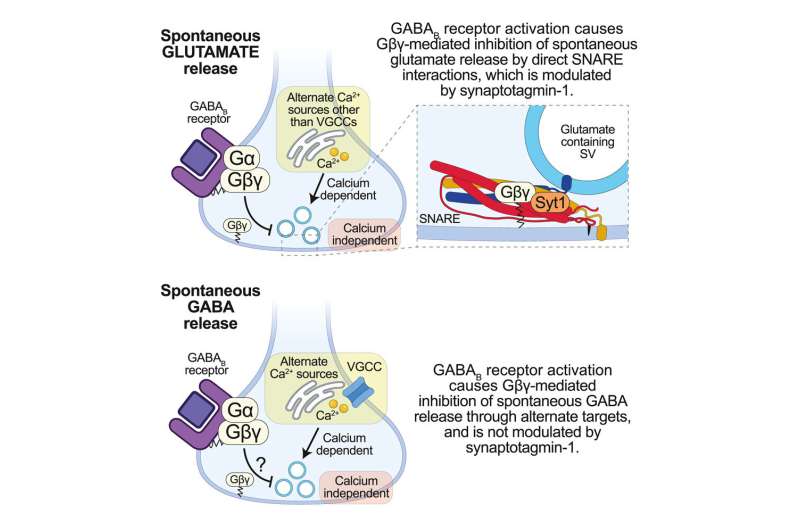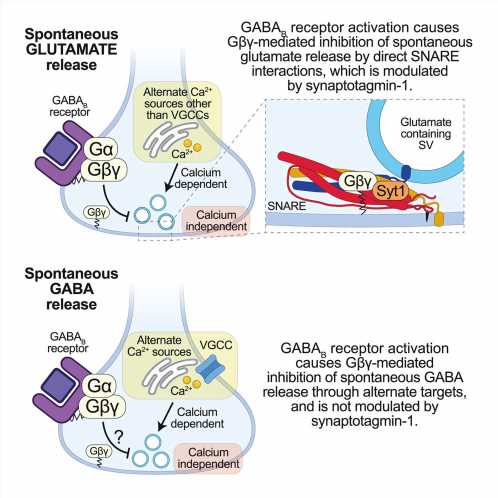
The brain is constantly firing and controlling purposeful action potentials—electronic messages used by neurons to communicate with each other and allow the brain to function. Conversely, the way spontaneous neural communication happens in the brain has been found to make use of a different process. Ege Kavalali, William Stokes Chair in Experimental Therapeutics and chair of pharmacology, and postdoctoral researcher Baris Alten worked with Heidi Hamm, Aileen M. Lange and Annie Mary Lyle Chair of Cardiovascular Research and professor of pharmacology, to discover the mechanism of one of the modulation pathways involved in spontaneous signaling, which has therapeutic potential for several neurological diseases.
The researchers used state of the art electrophysiology and live-cell imaging techniques to discover the mechanisms underlying how a neurotransmitter receptor site called a GABA receptor inhibits or suppresses spontaneous neurotransmitter release. Importantly, this inhibition mechanism is different than that for neurotransmitter release evoked by action potentials, which depend on factors such as calcium signaling.
“The modulation of neurotransmitter release through different methods is clinically beneficial in a wide variety of disorders, including epilepsy and depression,” said Natalie Guzikowski, a graduate student in the Kavalali lab and second author of the study.
Earlier Vanderbilt-led research has shown that the spontaneous release process can be targeted by rapid-action antidepressants and treatment of other neurological diseases. Knowing the mechanism of action for spontaneous release is critical for creating new drugs that can target that process. “Often, we need to be able to target only one mechanism, such as the spontaneous release of a neurotransmitter, while leaving other mechanisms intact,” Guzikowski said.
Source: Read Full Article
